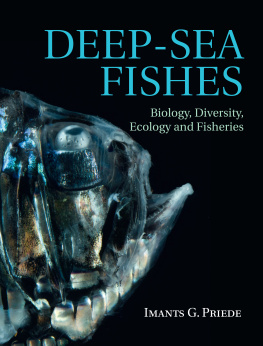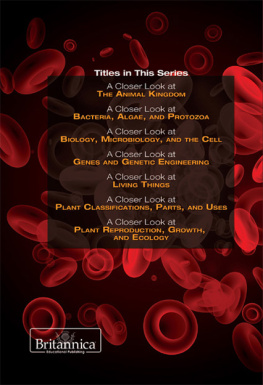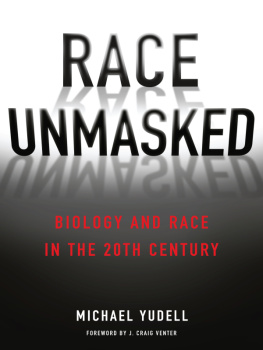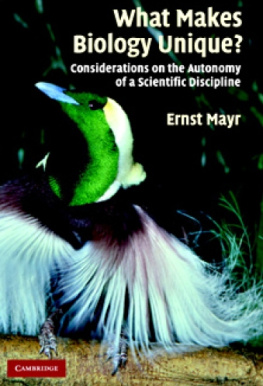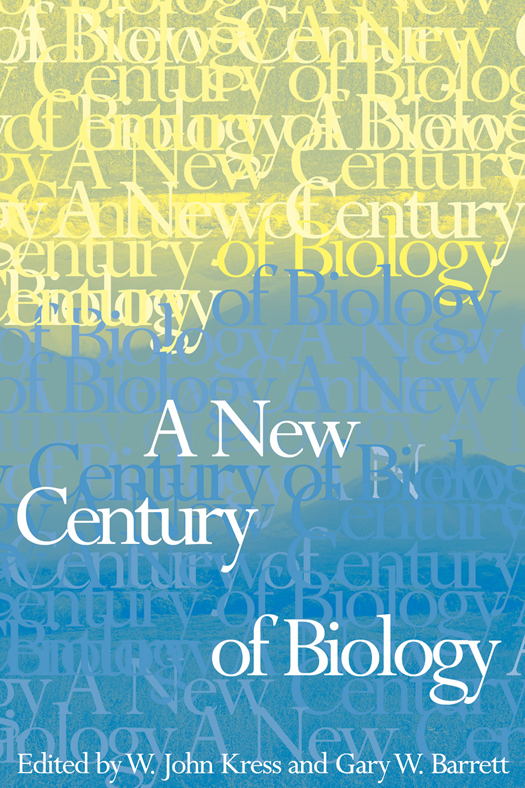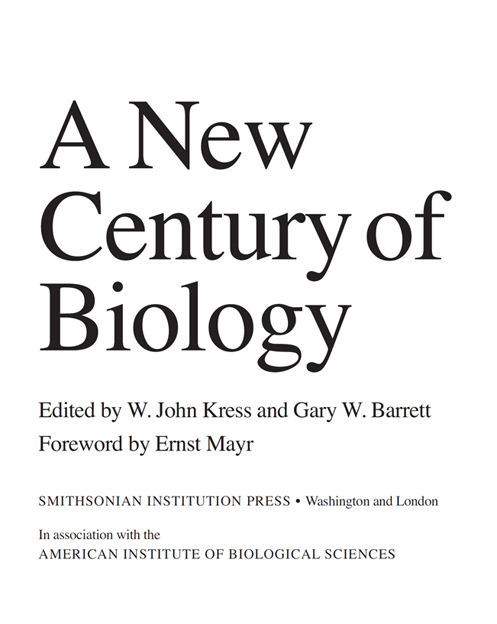2001 by the Smithsonian Institution
All rights reserved
Copy editor: Susan M. S. Brown
Production editor: Robert A. Poarch
Library of Congress Cataloging-in-Publication Data
A new century of biology / edited by W. John Kress and Gary W. Barrett.
p. cm.
Includes bibliographical references.
ISBN 1-56098-984-X (alk. paper) ISBN 1-56098-945-9 (pbk. : alk. paper)
eBook ISBN: 978-1-935623-90-8
1. Biology. I. Kress, W. John. II. Barrett, Gary W.
QH307.2.N49 2001
570dc21
2001018376
British Library Cataloguing-in-Publication Data is available
For permission to reproduce illustrations appearing in this book, please correspond directly with the owners of the works, as listed in the individual captions. The Smithsonian Institution Press does not retain reproduction rights for these illustrations individually, or maintain a file of addresses for photo sources.
ISBN: 978-1-560989-45-5 (print)
ISBN: 978-1-935623-90-8 (ebook)
A full subject index is included in the print edition.
v3.1
Contents
ERNST MAYR
W. JOHN KRESS AND GARY W. BARRETT
GARY W. BARRETT AND W. JOHN KRESS
LYNN MARGULIS
MARVALEE H. WAKE
GENE E. LIKENS
GORDON H. ORIANS
GHILLEAN T. PRANCE
THOMAS E. LOVEJOY
DANIEL H. JANZEN
EDWARD O. WILSON
Foreword
Biology in the Twenty-First Century
E RNST M AYR
Most living biologists, particularly the younger ones, may not realize how young a science biology is. To discover this, let us take a glance at the history of biology. The field had a most promising beginning with Aristotle in the third century before Christ. Aristotle was quite extraordinary because he was not only an excellent naturalist, particularly a very knowledgeable student of marine animals, but also interested in physiology and embryology. Alas, this promising beginning was not further followed up for almost two thousand years. In the sixteenth, seventeenth, and eighteenth centuries the famous Scientific Revolution took place, characterized by names such as Galileo, Kepler, Newton, and Descartes. When they made their great discoveries in the physical sciences, where was biology?
To be sure, there was a considerable interest in living nature but no cohesive science. There were two camps: one of the naturalists, who studied nature in the spirit of natural theology, who discovered ever more pieces of evidence for Gods near-perfect design of the living world. The writings of these naturalists reveal a remarkable understanding of the life histories and adaptations of living organisms but were not seen, at that time, as science. Medicine was the other stronghold of biology. It produced marvelous achievements in fields such as anatomy (Vesalius), embryology (Harvey), and physiology. Botany was vigorously advanced at that period because all medications were derived from herbs and exact identification of plants was of crucial practical value. All great botanists from the sixteenth to the end of the eighteenth century, with the single exception of John Ray, were medical doctors. This includes the great Linnaeus, often called the founder of systematics.
Around the year 1800 three different authors, the French zoologist Jean-Baptiste de Lamarck and two Germans, introduced the word biology, referring to the study of the world of life. These authors called for the development of such a science, but it did not yet exist. There could not be a science of biology until scientists had first learned a great deal more about the living world; the major biological disciplines had first to be founded. This took place in the thirty-eight years from 1828 to 1866: embryology (Karl Ernst von Baer, 1828), cytology (Theodor Schwann and Matthias Schleiden, 1830s), physiology (Claude Bernard and Hermann Helmholtz, 1840s), evolution (Alfred Russel Wallace and Charles Darwin, 185859), and genetics (Gregor Mendel, 1866). Yet a real synthesis did not occur until seventy-five years later. Until then the workers in functional biology (physiology, embryology) ignored the achievements of evolutionary biology (and genetics) and vice versa. Indeed, major controversies within each of these fields had to be settled first. As far as evolutionary biology is concerned, in the early 1930s there were two camps: the experimental geneticists, mostly interested in the mechanism of evolution and studying variation within a population as well as the achievement and maintenance of adaptation, and another camp consisting of the naturalists, systematists, and paleontologists, primarily interested in the study of biodiversity, that is, species, speciation, and macroevolution. Between 1937 and 1947 a synthesis of the two fields was achieved through a mutual understanding of each others views. The result was the so-called evolutionary synthesis, actually very much a return to classical Darwinism, evolution as variation and selection.
The next major event was the founding of molecular biology through the discoveries of Oswald Avery and of James Watson and Francis Crick (194453). One might have expected that these discoveries would result in a major revolution in evolutionary biology, but this did not take place. Molecular biology made possible a fine-grained analysis, but it did not result in a refutation of the underlying Darwinian theory. Indeed, molecular biology made some magnificent contributions to our understanding of evolution, such as that the material of inheritance is nucleic acid rather than proteins, and that the genetic code is the same for all organisms from the bacteria up, indicating a single origin of life, but it did not touch the basic Darwinian framework. Perhaps the greatest contribution made by molecular biology was that it gave a new lease on life to developmental biology, which for several decades had been virtually dormant. One could refer to the last fifty years as the era of nucleic acids. But DNA gives only information and instructions, the real work in development is done by proteins. I foresee that the next fifty years will be more and more an era of the proteins.
Now, I will try to take a look at the future. With all these achievements, am I willing to say that the task of biology is finished? Not by any means! To be sure, the major theoretical framework of modern biology is remarkably robust. Even in a field as tumultuous as evolutionary biology, our currently accepted theories are remarkably similar to Darwins original proposals. However, the basic philosophy of biology, as it has developed in the last fifty years, has become quite different from the classical philosophy of science as it prevailed from the Vienna school of Rudolf Carnap and Otto Neurath to Karl Popper and Thomas Kuhn. In the rejection on the one hand of all vitalistic theories and of concepts such as cosmic teleology, and on the other hand of all physicalist concepts such as essentialism, determinism, and reductionism, and their replacement by an acceptance of the frequency of random events, plural solutions, the importance of historical narratives, multiple causations, population thinking, and the greater significance of concepts than of laws in theory formations, the new biology has undergone a complete revolution.
But what about our understanding of the basic biological phenomena? I have the feeling that we are remarkably far advanced in this understanding, of let us say how a neuron works or the nature of genes. Where our knowledge lags behind is in the understanding of complex systems. The first of these is the developmental system, the development of a zygote from the fertilized egg to the finished adult. There is still an enormous amount to be learned, not only about the interaction of various kinds of genes, particularly regulatory genes, but also about the inducing interaction between different tissues.



